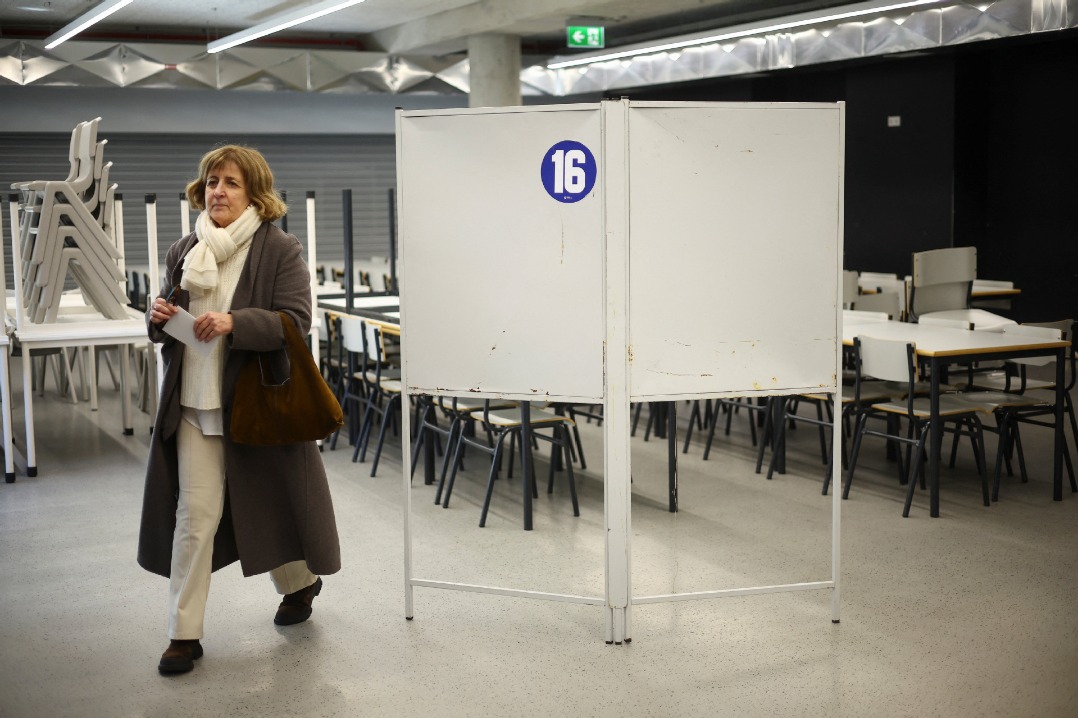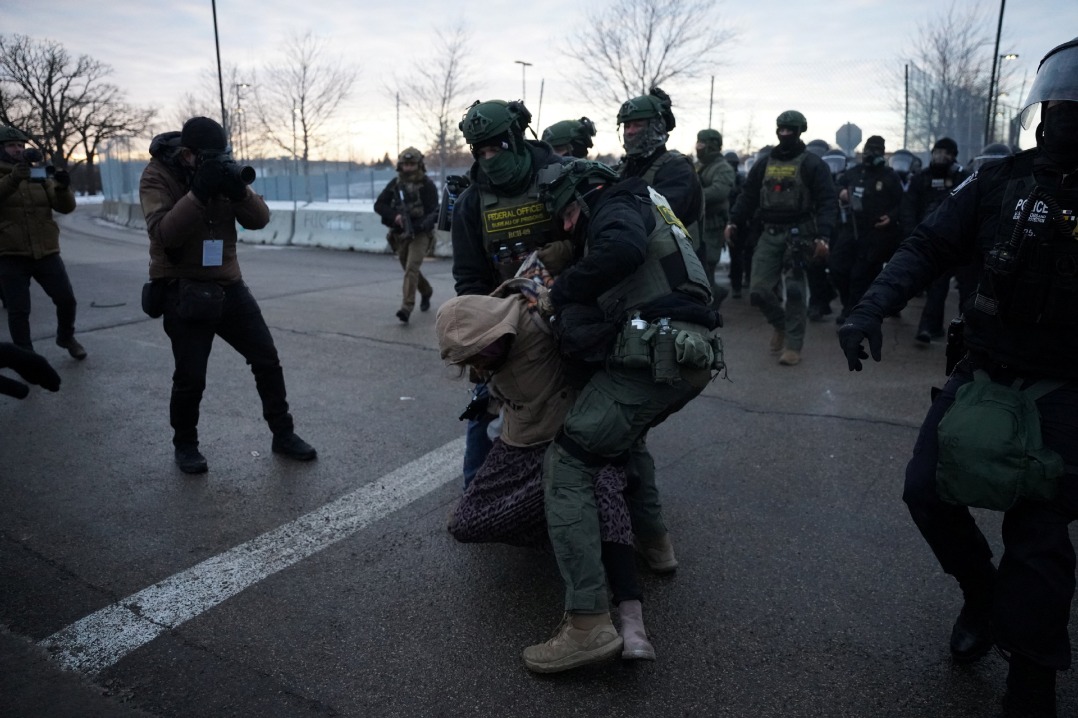Exit could end New START agreement


Washington's intention to withdraw from the Intermediate-Range Nuclear Forces Treaty has increased Moscow's worry over the future of another major arms reduction agreement between the two countries.
The fate of the New Strategic Arms Reduction Treaty (New START), signed between Russia and the United States in 2010 and expected to last at least until 2021, is up in the air after Washington's statement on withdrawing from the INF Treaty, Russian Foreign Minister Sergey Lavrov said on Sunday.
"The Anti-Ballistic Missile Treaty has vanished and all our attempts to establish any reasonable dialogue with the United States and NATO amid the lack of the agreement have not found an echo and the INF Treaty will soon disappear while the fate of the New START Treaty is unclear," he said.
Under terms of the New START, the number of strategic nuclear missile launchers will be reduced by half.
US National Security Advisor John Bolton confirmed Washington's decision to quit the INF during his visit to Moscow last week.
However, Lavrov expressed no dissatisfaction over the withdrawal in his latest TV interview.
"I would say that no offense at all was expressed on our part," he said. "President Vladimir Putin had said very clearly that we understand that this is their decision, and there is no way we can influence it."
Evgeny Buzhinskiy, chairman of the Russian Center for Policy Research, said the withdrawal from the INF by the US will cause serious consequences to global security.
He said it is now clear that the New START may follow the fate of the INF, and the whole system of arms control may cease to exist.
"But I think it is not going to be like that for long. Sooner or later, the United States will come to the same conclusion they reached in the late 1960s: When it comes to nuclear weapons, predictability is even more important than arms reductions," he said.
Pavel Zolotaryev, deputy director of the Institute for US and Canada Studies of the Russian Academy of Sciences, agreed. He said the elimination of the INF is only the first step of the US government, and the next will be the refusal to extend the New START.
He said: "If it happens, both Russia and the US will take the responsibility for the chaos in the nuclear arms control system, and the two nuclear powers should then search for a way out of the current situation."

































